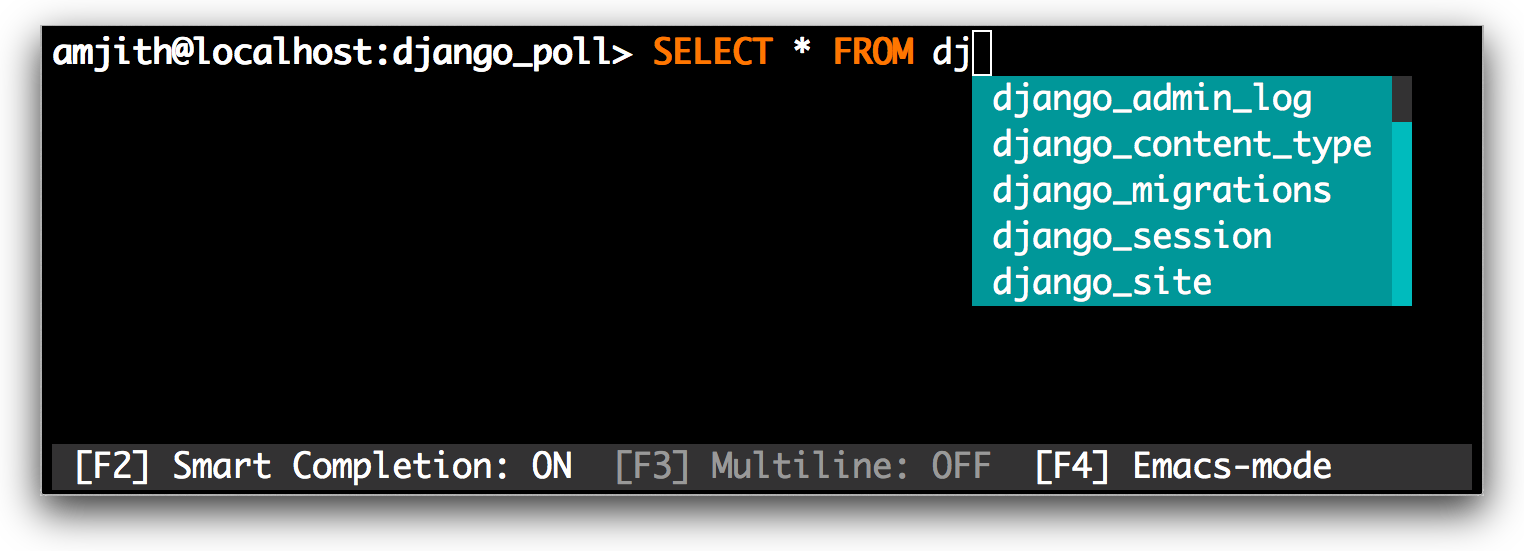Start using CLI more and more with mycli
July 18, 2018 Written By Marco Monteiro
Ever since I moved into Linux I started using the CLI even more. Don’t get me wrong, I used it quite a lot on Mac. However if there was one thing that I normally didn’t use it for was for mySQL. However a few days ago I discovered mycli. Since then I gotta say. Love it!
Here’s a bit more about the tool.
Install the thing first:
$ sudo apt-get install mycli
Usage:
$ mycli --help
Usage: mycli [OPTIONS] [DATABASE]
A MySQL terminal client with auto-completion and syntax highlighting.
- mycli my_database
- mycli -u my_user -h my_host.com my_database
- mycli mysql://my_user@my_host.com:3306/my_database
Options:
-h, --host TEXT Host address of the database.
-P, --port INTEGER Port number to use for connection. Honors $MYSQL_TCP_PORT.
-u, --user TEXT User name to connect to the database.
-S, --socket TEXT The socket file to use for connection.
-p, --password TEXT Password to connect to the database.
--pass TEXT Password to connect to the database.
--ssl-ca PATH CA file in PEM format.
--ssl-capath TEXT CA directory.
--ssl-cert PATH X509 cert in PEM format.
--ssl-key PATH X509 key in PEM format.
--ssl-cipher TEXT SSL cipher to use.
--ssl-verify-server-cert Verify server's "Common Name" in its cert against hostname used when connecting. This option is disabled by default.
-V, --version Output mycli's version.
-v, --verbose Verbose output.
-D, --database TEXT Database to use.
-d, --dsn TEXT Use DSN configured into the [alias_dsn] section of myclirc file.
--list-dsn list of DSN configured into the [alias_dsn] section of myclirc file.
-R, --prompt TEXT Prompt format (Default: "\t \u@\h:\d> ").
-l, --logfile FILENAME Log every query and its results to a file.
--defaults-group-suffix TEXT Read MySQL config groups with the specified suffix.
--defaults-file PATH Only read MySQL options from the given file.
--myclirc PATH Location of myclirc file.
--auto-vertical-output Automatically switch to vertical output mode if the result is wider than the terminal width.
-t, --table Display batch output in table format.
--csv Display batch output in CSV format.
--warn / --no-warn Warn before running a destructive query.
--local-infile BOOLEAN Enable/disable LOAD DATA LOCAL INFILE.
--login-path TEXT Read this path from the login file.
-e, --execute TEXT Execute command and quit.
--help Show this message and exit.


Features
mycli is written using prompt_toolkit.
- Auto-completion as you type for SQL keywords as well as tables, views and columns in the database.
- Syntax highlighting using Pygments.
- Smart-completion (enabled by default) will suggest context-sensitive completion.
- SELECT * FROM
will only show table names. - SELECT * FROM users WHERE
will only show column names. - Support for multiline queries.
- Favorite queries with optional positional parameters. Save a query using \fs alias query and execute it with \f alias whenever you need.
- Timing of sql statments and table rendering.
- Config file is automatically created at ~/.myclirc at first launch.
- Log every query and its results to a file (disabled by default).
- Pretty prints tabular data (with colors!)
- Support for SSL connections